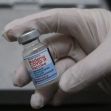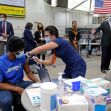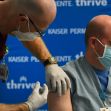The global population has relied on vaccinations for centuries. From the eradication of smallpox to the control of infectious diseases like measles and polio, vaccines have served as a powerful weapon for healthcare professionals. While the FDA has a longstanding rigorous system in place to address safety and efficacy concerns, emergency situations like the current COVID-19 crisis are eligible for special considerations regarding the authorization and delivery of vaccinations.
The process of vaccine development typically begins in a prelicensure phase that is first initiated in a laboratory setting. If laboratory tests show potential benefits, trials on animal subjects will take place. Once it is suggested that the vaccination is safe in humans, clinical trials can begin.
Clinical trials are volunteer-based and composed of three phases. Phase 1 begins with the vaccination of 20 to 100 healthy individuals. During this phase, information regarding proper dosage is gathered. If no serious side effects are found, phase 2, which involves hundreds of participants, can take place. During phase 2, possible side effects may be presented. Phase 3 involves the administration of the vaccine to hundreds or thousands of volunteers. During this phase, scientists can gather safety information regarding trends in side effects as well as gain insight into the overall effectiveness of the vaccine.
Before receiving licensure, the FDA evaluates the vaccine based on a myriad of factors. Not only does the FDA assess the safety and efficiency of a vaccine based on the results from clinical trials, other aspects such as the physical, chemical and biological properties are also taken into account. Manufacturing procedures are also considered in order to ensure that the vaccine is pure and potent. If it is determined upon review that the benefits outweigh the potential risks, vaccine approval will be granted.
After a vaccination gains licensure, the evaluation of the potency and safety of the vaccine does not cease. The FDA continues to monitor for adverse effects that may not have manifested during clinical trials. In addition, the FDA also oversees manufacturing sites to ensure compliance with Current Good Manufacturing Practice (cGMP) regulations.
Although it can take years to develop a viable vaccine following typical procedures, in public health emergencies like the current pandemic, special considerations may be granted to expedite the process. Section 564 of the Federal Food, Drug, and Cosmetic Act permits the FDA to allow “unapproved medical products or unapproved uses of approved medical products” to be used in emergencies when there are no other approved options. Such medical products undergo review by the FDA and can be granted Emergency Use Authorization (EUA). The issuance of an EUA would allow for the faster manufacturing and distribution of products.
Emergency Use Authorizations are not synonymous with full FDA approval. Although the general public tends to use the two terms interchangeably, they do in fact entail different processes. While FDA approval is based on substantial evidence gathered from a series of thorough trials, an EUA can be issued if “it is reasonable to believe that the product may be effective.” In addition, an EUA will remain in effect until it can be declared that the public health emergency is no longer a threat.
While under review for an EUA, the FDA looks at the available scientific evidence and decides if the benefits of making a vaccination available to the public outweigh the potential risks. During this review, special considerations are taken into account due to the urgent nature of a public health emergency.
As a result of COVID-19, the FDA has issued an EUA for baricitinib, an anti-inflammatory drug typically used to treat rheumatoid arthritis, in combination with remdesivir, an antiviral drug originally created to combat Ebola. The authorization for administering both drugs in conjunction with one another to treat hospitalized COVID-19 patients is based on a series of factors. Evidence from clinical trials shows potential benefits as well as no known serious side effects. Additionally, the lack of adequate alternatives that produce the same effect has also contributed to the FDA’s grant of an EUA.
Currently, vaccines from five different corporations are in phase 3 of clinical trials. Two biotechnology companies have set scientific records in their search for a COVID-19 vaccine. Both companies have applied for Emergency Use Authorization and are waiting for review by the FDA. If authorization is granted, the administration of vaccines may begin as early as before year’s end. Pfizer is currently scheduled for review on December 10th while Moderna is scheduled just one week later on December 17th.
While there is no current authorized vaccine to prevent COVID-19 in the United States, as of December 2nd, the United Kingdom has granted emergency authorization to Pfizer and will begin the administration of vaccinations as early as next week, marking a historic moment in the battle against COVID-19.






